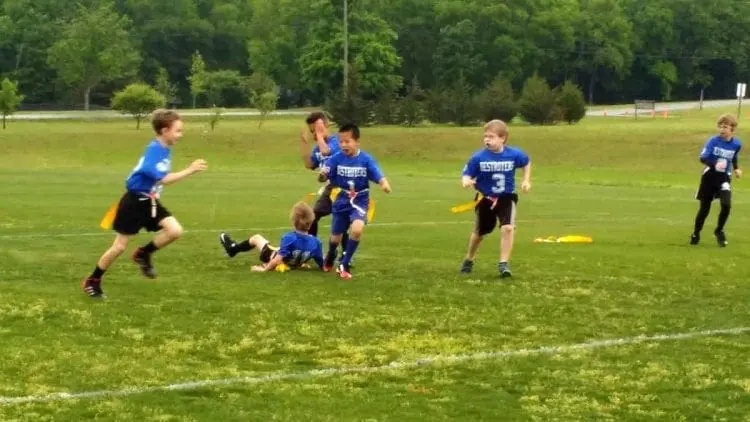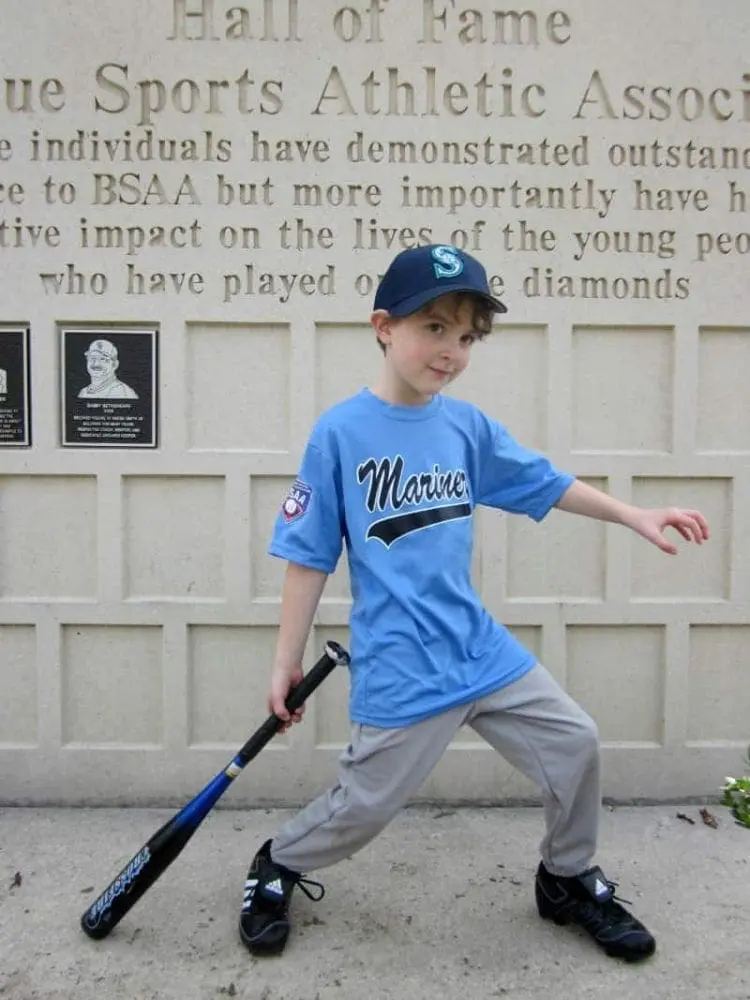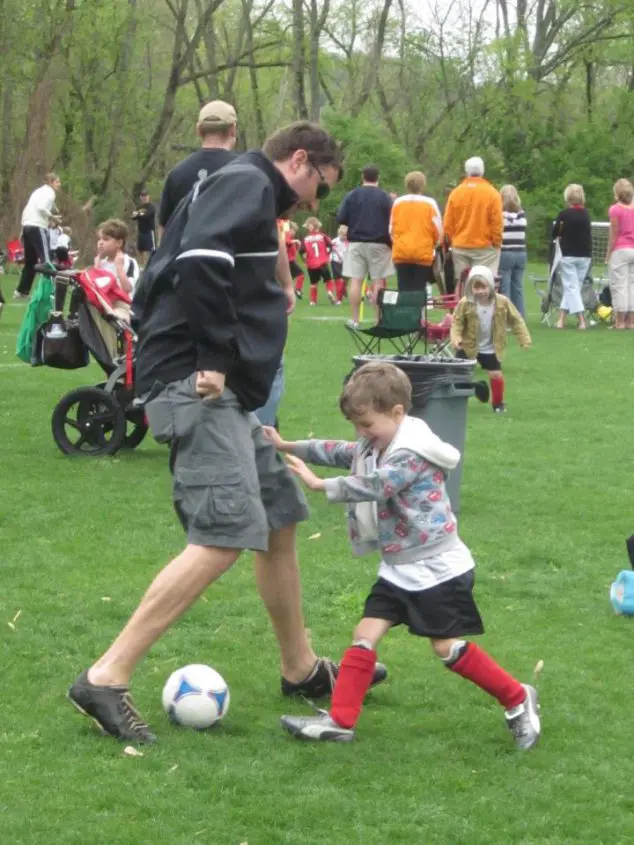Sports for kids are an important part of growing up. Young athletes are learning more than just new skills and good exercise behaviors. Here’s why sports are good for kids and some of the social and psychological benefits of participating in team sports for kids. We will also discuss how to encourage sports in youth. Starting sports early, helps develop strength, skills, and confidence. Don’t worry, there are lots of sports for kids to get involved in so there is a sport for every child! Plus, athletic programs are a great way for kids to make new friends and explore their full potential.
Best Sports For Kids
Fall Sports include: Football, Golf, Cross Country, Rifle, Cheer, Crew
Winter Sports include: Basketball, Swimming & Diving, Wrestling, Hockey, Skiing, Ice Skating, and Bowling
Spring Sports include: Crew, Lacrosse, Baseball, Soccer, Track & Field, Tennis, Shotgun
Summer Sports include: Beach Volleyball, Frisbee Golf, Surfing, Skateboarding, and Biking
And you can probably still think of more sports for kids which are hard to break down by season such as martial arts, gymnastics and dance. The point is there are so many ways to get your child active and involved in a team. See what they gravitate towards. They might need to try several option before they find where their natural talent and interests lie.
Kids First Sports
Some of the most popular options for kids first sports are tee ball, flag football, soccer, and basketball. My son and daughter both started with tee ball and soccer. Then my son progressed to flag football, basketball, cross country, and track.
Why Are Sports Good For Kids?
Sports are a great way to get physical exercise for children and according to Kids Health that is so important to building strong bones and muscles. Because sports are fun, they make exercise fun and ensure that it happens. Besides building strength, endurance, and flexibility, kids will be getting aerobic activity which is great for their heart and lungs.
Sports for kids offer so much more than just physical fitness benefits though. Kids will also be working in groups, developing social skills and a concept of being part of a team. They will be learning how to be lead and what makes good role models. Sports for kids help them build self-confidence and find a tribe where they belong. They will learn what defeat feels like and what winning feels like. Kids will learn that winning takes effort and practice. That is just a few of the reasons why sports should be encouraged. There are so many benefits of team sports!
Here are some of the social and psychological benefits of participating in team sports for kids:
- Teamwork and Cooperation: Team sports teach children the importance of working together towards a common goal. They learn to cooperate, communicate, and collaborate with teammates, developing essential teamwork skills.
- Social Skills: Engaging in team sports provides kids with opportunities to interact with peers, coaches, and other adults. This helps improve their social skills, such as communication, empathy, and conflict resolution.
- Discipline and Time Management: Being part of a team requires commitment and adherence to schedules. Kids learn to manage their time effectively, balancing schoolwork, practice, and other responsibilities. This helps instill discipline and organizational skills.
- Leadership Development: Team sports often involve leadership roles, such as team captains. Kids can learn to lead by example, motivate others, and take on responsibilities, fostering leadership qualities.
- Self-Esteem and Confidence: Achieving personal and team goals in sports can boost a child’s self-esteem and confidence. Overcoming challenges, improving skills, and receiving positive feedback contribute to a sense of accomplishment.
- Emotional Regulation: Sports can be emotionally challenging, requiring kids to handle wins and losses gracefully. This experience helps them develop emotional regulation skills, resilience, and the ability to cope with stress.
- Healthy Lifestyle Habits: Regular participation in team sports promotes physical activity and a healthy lifestyle. It can contribute to the development of good habits that can have long-term benefits for physical and mental well-being.
- Friendship and Camaraderie: Playing on a team fosters a sense of camaraderie and friendship. Kids build strong bonds with teammates, creating a supportive social network that extends beyond the field or court.
How To Encourage Your Kids To Play Sports:
Even with all these reasons why sports are good for kids, you may still have a child who can’t seem to find their niche or just doesn’t feel athletic. Here is how to encourage a child in sports.
As a parent, sometimes we want our kids to be the best and well, he just isn’t. That is OK. They don’t need to be the most athletic child on the team to still be benefiting from the sport. Your child needs your support and encouragement to succeed. Remember, you aren’t their coach. You are their cheerleader.
That kids who seems like a natural talent probably has had a lot of encouragement for a long time. I mean both in terms of the parent actively practicing with the child and showing approval and pride in their efforts. Here’s how you can encourage your child in sports. The basics include setting your child up for success with all the right gear and a positive attitude. Make sure they have a good pair of kids’ running shoes. Just as important, make sure you have a positive attitude and encourage them to have fun and enjoy themselves.
The Key To Being Able To Encourage Your Child Is To Find Their Love Language
Do you understand how your young athlete receives love and encouragement? In 2007, Dr. Gary Chapman wrote a book called The Five Love Languages. His premise is that every person has one love language that speaks more loudly and deeply to him or her. The love languages are: physical touch, words of affirmation, quality time, giving and receiving gifts, and acts of service. To your child, one of those speaks of your love more clearly than the others. Determining which love language, will help you communicate encouragement to your child in a way he truly hears. It will allow you to effectively communicate your support for your young athlete in a way that will make him feel proud and inspire him to keep improving.

PHYSICAL TOUCH
Some athletes respond to a hug of excitement after a good game or a hug of consolation after a bad one. Do you know if your child is one of those? Mine weren’t. Hugging was the last thing they wanted from me after a game. My job was not to take that personally and to find out what they did want from me. If your child is a hugger, then by all means, hug them before, after games, and often in between.
WORDS OF AFFIRMATION
Maybe your athlete only needs to hear he did a good job. He worked hard. He is improving. He’s a leader on the field. If words of affirmation are his love language, then be frequent with your encouragement, avoiding fluffy flattery and focusing on words that are sincere and heartfelt.
QUALITY TIME
Some kids just want your undivided attention. They want you to play catch with them, shoot baskets with them, take them to the batting cages, and of course, come to their games. Spending quality time with them is enough to fill their love tanks.
GIVING & RECEIVING GIFTS
Parents are tempted to speak this language almost exclusively because it’s easy. But the fact is, some kids do not feel loved by the gifts showered on them. Although gift giving is not the love language of all kids, for some it speaks loudly of love. A new bat, sports bag, glove, basketball. A volleyball net in the back yard. Or think outside the norm and hide small gifts in their lunch or sports bag. When a youth athlete knows his needs are met above and beyond, he feels loved.
ACT OF SERVICE
As our kids grow, we strive to teach them independence. They learn to wash their own clothes, help with chores, make their own lunches, clean out the car. This is as it should be. When we know that our child’s love language is acts of service, we should’t feel we are robbing them of their chance to learn independence when we serve them. When we do acts of service as an expression of love with a caring attitude, rather than a duty, we are communicating love. Go ahead, wash her uniform for her while she does homework. Clean her room while she’s away on a team trip. Make her lunch when she’s had a rough night of practice. Not all the time of course. Acts of service are gifts and we don’t have to give gifts all the time.
Our young athletes need to receive love in all five languages, but focusing on the primary love language of your child will fill his love tank much quicker and more effectively. This means your encouragement will really sink in.
Conclusion
It’s important to note that while team sports offer numerous benefits, each child is unique, and their experiences may vary. Encouraging a positive and supportive environment is crucial to maximizing the positive impact of team sports on a child’s social and psychological development.
Incorporating sports into children’s lives provides a fun way to encourage teamwork, hard work, and core values like discipline and respect. Whether through school programs, child care centers, or the recreation department, kids can explore a variety of sports suited to different age groups and skill levels. From youth football, including tackle football for older kids, to non-contact options for younger children, sports offer a healthy outlet for energy and emotions. Beyond physical benefits, friendly competition helps build confidence and social skills, shaping well-rounded individuals ready to succeed both on and off the field.
There are so many sports for kids to become involved in. Try a few different ones to help your child find one they enjoy. There are so many reasons why sports are good for kids and it worth the effort to get them involved. Make sure to practice with your child when possible. Encourage them in their youth sports to help them reach their potential.
Related Posts:
25 Fun Outdoor Activities For Kids And Families



Marie says
Indeed, sports and other physical activities are great for children. There is such a great variety of youth competitive sports. It is a great way to get out and enjoy our local parks and meet other families in a safe environment.
Hannah says
Great post! Sports are such a fantastic way to build teamwork and discipline. It’s amazing to see how advanced players refine their skills, especially when it comes to ball control in different sports like soccer and basketball. Keeping up with game schedules can be challenging, but it really helps players stay committed and improve over time. Looking forward to more insights on training and development!
Abdullah Ibna Jafar says
Great post! I love how you highlighted not just the physical benefits of sports, but also the social and emotional growth kids gain from them. The idea of finding a child’s love language to support their sports journey is such a thoughtful approach. Definitely important for their development!
Aaron Judge says
Great article! Encouraging kids to participate in sports is essential for their physical and mental growth. Having the right gear can also boost their confidence and passion for the game.
Sara says
Such a helpful read! Sports really do teach kids so much beyond just physical skills. Love the reminder that every child has a unique journey in finding their favorite sport. Definitely bookmarking this for inspiration!
Megan says
Sports for Kids builds Skills and Confidence! Getting kids into sports isn’t just about fitness—it’s about teamwork, discipline, and confidence. Encouraging them with fun activities, positive reinforcement, and the right gear can make all the difference.